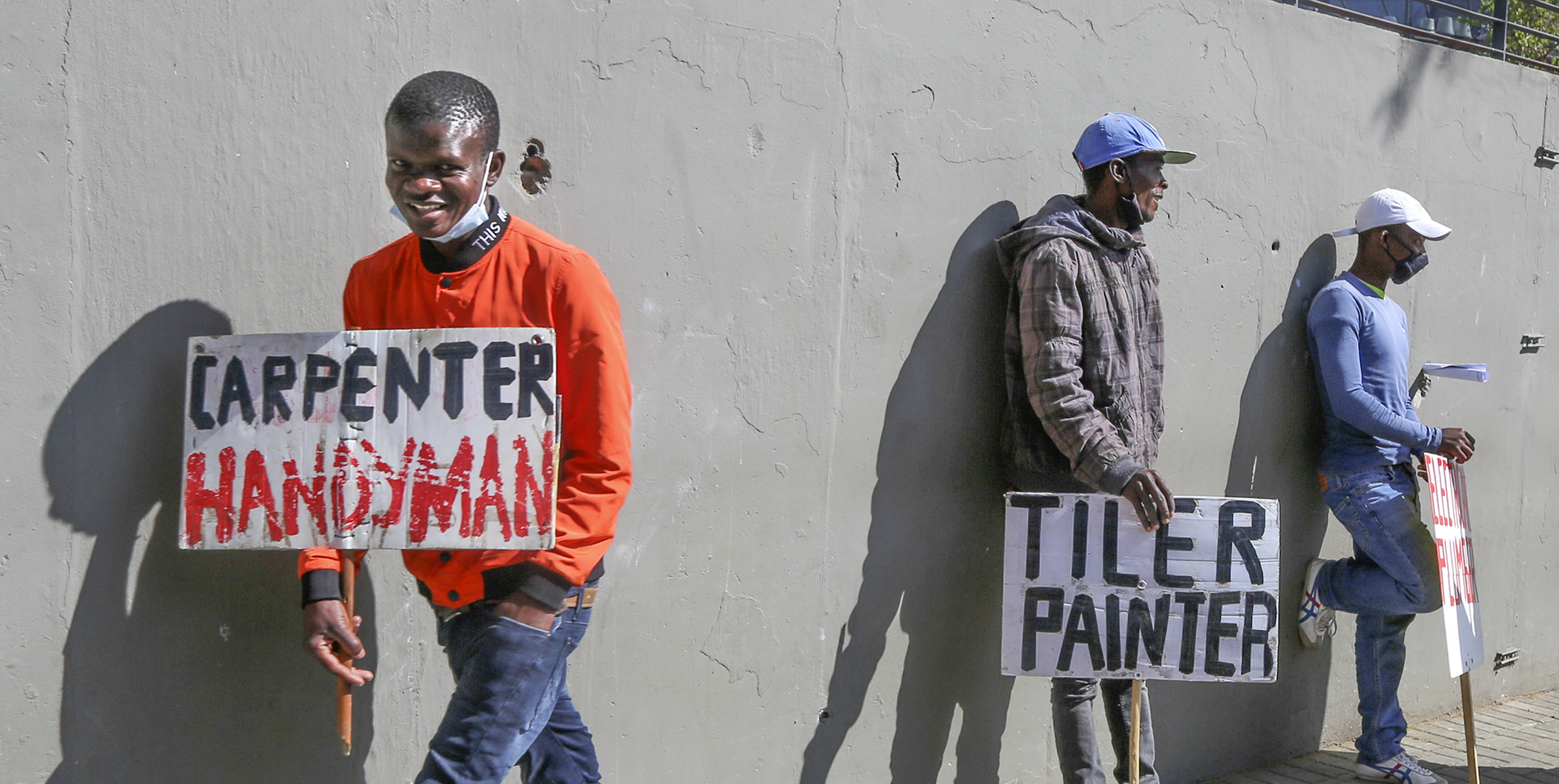The good news is that South Africa’s sky-high unemployment rate fell in the third quarter (Q3) of this year. The bad news is that more than four in 10 South Africans, according to the expanded definition, remain unemployed, while 16.5 million are “not economically active”.
Statistics South Africa (Stats SA) said on Tuesday that the unemployment rate declined to 32.1% in Q3 from 33.5% in the previous three-month period, a reflection of cautiously rebounding business confidence under the Government of National Unity (GNU) and Eskom’s vastly improved performance.
Under the broader definition, which includes discouraged job seekers, the rate fell 0.7 of a percentage point to 41.9%.
The biggest increases in employment were in community and social services, which added 194,000 jobs.
This was followed by the construction industry, which added 176,000 jobs. This is a good sign: construction is labour-intensive and the sector can be seen as a signal of confidence or lack thereof. Companies and households don’t invest capital in building stuff without a foundation of at least some optimism.
The finance sector shed 189,000 jobs — a worrying sign for consumption and tax revenues, as it has some of the highest salaries in the economy.
At the other end of the salary/wage scale, employment in private households recorded a decline of 32,000. This suggests domestic staff are being laid off by cash-strapped middle-class households.
The data, it must be said, can also be volatile from quarter to quarter, and these trends could show a reversal in the next read.
Unemployment moving in the right direction albeit slowly
Overall, the unemployment rate, at least, is moving in the right direction. But meaningful job creation remains elusive.
“We expect South Africa’s unemployment rate to continue its decline over the coming quarters, on the back of businesses being more optimistic about the domestic economy. Although businesses are less gloomy than before the elections in May, there is a lot of ground to be made up,” Jee-A van der Linde, senior economist at Oxford Economics Africa, said in a note on the data.
You know your economy is seriously on the rocks when an unemployment rate of 32.1% is taken as relatively good news.
“... there was an increase of 294,000 in the number of employed persons to 16.9 million in Q3 2024, while there was a decrease of 373,000 in the number of unemployed persons to 8 million,” Stats SA said.
But the number of discouraged job seekers rose by 160,000 to 3.4 million, while those not economically active for other reasons increased by 54,000. That all adds up to 16.5 million South Africans who were classified in Q3 as “not economically active”, a rise of about 200,000 on the previous quarter.
Being “not economically active” means grinding poverty with few sources of income or sustenance beyond dependence on a family breadwinner, social grants, subsistence agriculture, informal trade or begging at traffic lights.
Read more: SA economy grows 0.4% in Q2 after flatlining in Q1, household expenditure shows surprise lift — Stats SA
Last month the Treasury downgraded its economic growth forecast for 2024 to 1.1% from 1.3%, and the outlook for the next three years is for growth to average 1.8% — well short of the pace needed to spark significant job creation and arrest the swelling ranks of the “not economically active."
In the shorter term, hopefully the unemployment rate will keep falling if public-private partnerships under the GNU gain serious traction, and economic growth reaches higher levels than those forecast.
“Increased private-public partnerships are widely considered the catalyst for unlocking strong job growth and new investment to boost South Africa's growth potential,” Van der Linde said.
Even much faster rates of economic growth may not be a panacea for job creation, given South Africa's chronic skills shortage and the looming threats to human roles posed by mechanisation, automation and AI. DM





